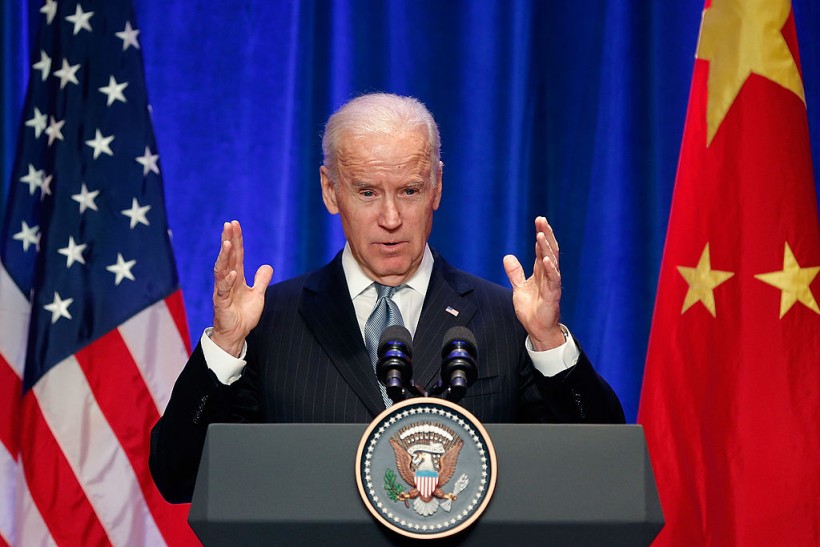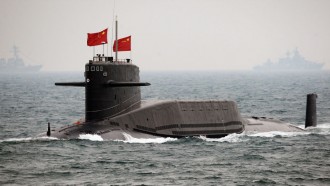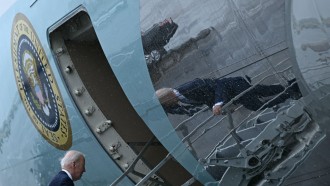President Joe Biden has taken a decisive step by enacting an executive order that imposes fresh restrictions on American investments in specific categories of Chinese technology enterprises.

(Photo : Lintao Zhang/Getty Images)
BEIJING, CHINA - DECEMBER 05: U.S Vice President Joe Biden speaks at a business leader breakfast at the The St. Regis Beijing hotel on December 5, 2013 in Beijing, China. U.S Vice President Joe Biden is on an official visit to China from December 4 to 5.
Restricting Investments in Chinese Companies
United States President Joe Biden signed an executive order to tackle the pressing national security apprehensions linked to firms dealing in "sensitive technologies," encompassing semiconductors, quantum computing, and artificial intelligence. It emphasizes the urgency of curbing progress in these sectors.
Due to the potential acceleration of advanced computational capabilities, this acceleration could subsequently give rise to new applications carrying substantial national security risks. These risks range from the development of more intricate weaponry systems to the potential decryption of cryptographic codes, offering these nations a strategic military edge.
While the impact of this directive is limited in scope and will only come into play in the upcoming year, it serves as a clear indicator of China's leadership. Despite recent improvements in diplomatic ties, the message from Washington is resolute: there are plans to persist in enforcing limitations on Beijing's ability to access crucial technological advancements.
China's Response
The impending executive order drew swift and decisive reactions from Chinese officials. In a statement to The Washington Post, Chinese Embassy spokesman Liu Pengyu criticized the U.S. for its recurring tendency to infuse technology and trade matters with politics, leveraging them as instruments under the guise of national security.
Liu asserted that China would vigilantly monitor unfolding events and staunchly protect its rights and interests.
Prioritization
On the other hand, critics of China in the U.S. Congress argue that the forthcoming executive order, while excluding sectors like biotechnology and energy, falls short of their expectations. Engadget reported that they maintain that the proposal's reach should extend further to achieve desired outcomes.
Rep. Michael McCaul, who chairs the House Foreign Affairs Committee, emphasized that investing in Chinese companies perpetuates the pattern of prioritizing industry interests over national security, especially during a time when robust actions are imperative.
He highlighted the necessity of halting the financial and knowledge exchange aiding the Chinese Communist Party's military and surveillance technology endeavors. He urged a departure from incremental steps that proved to be time-consuming in their implementation and advocated for more comprehensive measures to swiftly address the issue.
Also Read: US Officials Discuss Chinese Policies with Chip Companies
Resulting from an internal deliberation spanning two years, the directive grants Janet L. Yellen the power to oversee and control American investment in three distinct sectors of Chinese enterprises. These encompass quantum computing, military-oriented artificial intelligence, and cutting-edge semiconductors.
Against the backdrop of a fragile warming trend in a relationship characterized by intermittent interactions, the White House directive emerges. This trajectory has been marred by a series of starts and stops, exacerbated by the presence of a Chinese surveillance balloon flying over the mainland United States earlier in the year.
Related Article: U.S. Companies Shift Supply Chains Away from Chinese Suppliers Amid Trade Relations










